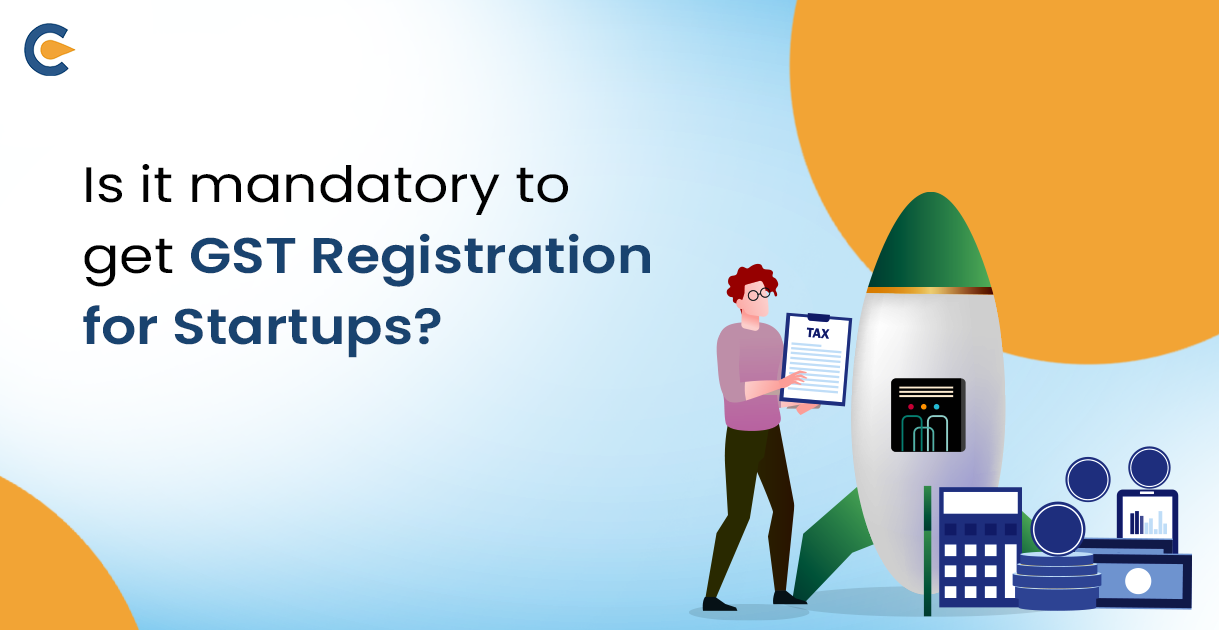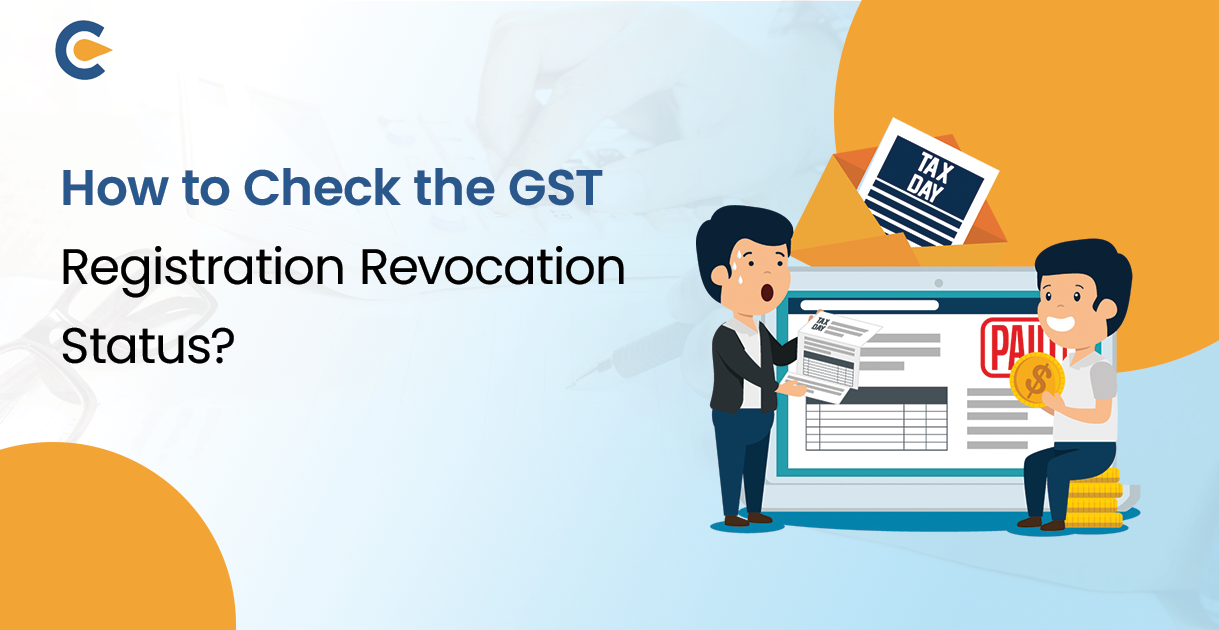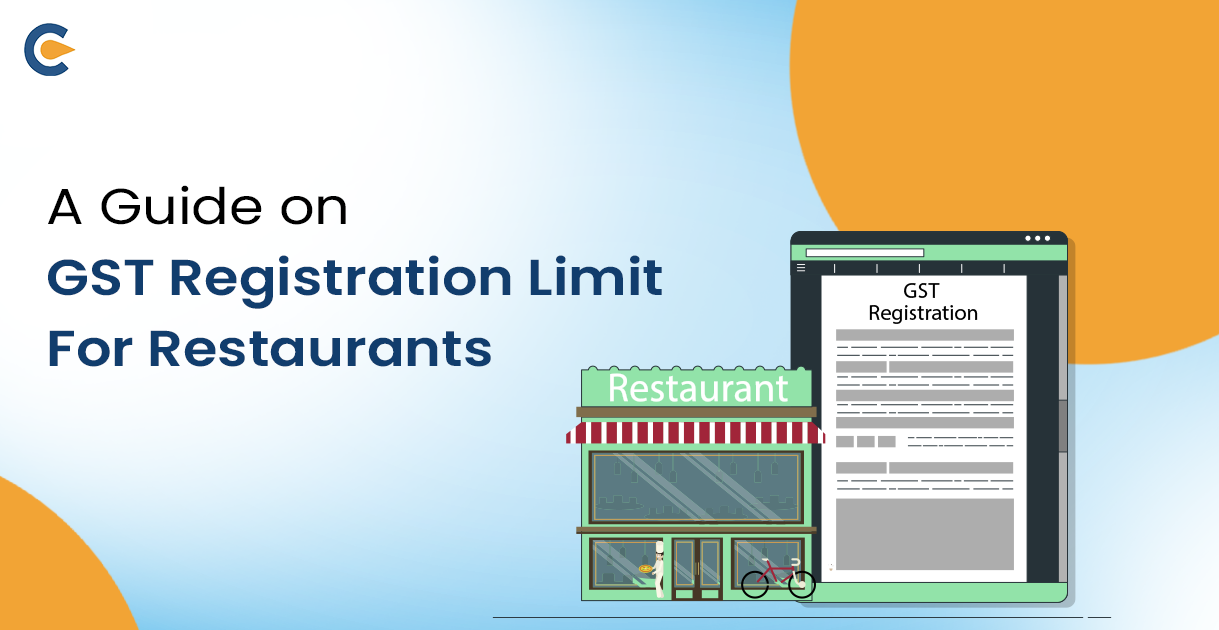The implementation of the Goods and Services Tax (GST) in India has had a substantial influence on how new businesses are founded and operated in the country. GST was introduced in the country with a motto of ‘one nation, one tax’. As you plan your new entity, keep in mind that GST registration for startups is required to ensure your firm gets off to a good start and is in compliance with the laws of the land. GST registration requires a yearly revenue of more than Rs. 40 lakhs for services and 20 lakhs for goods. To be eligible for GST registration for startups, you must sell goods and services over state borders or via an e-commerce platform. With the new tax regulations in place, entrepreneurs must understand that GST registration is required for companies.
Why is GST Registration Mandatory for Startups?
GST Registration is Mandatory for Startups for so many reasons –
Legal Compliance
The need for GST Registration for startups is to maintain the legal compliance set by the government for a threshold limit depending on the nature of the business. If a business is into providing services, then its threshold limit is 20 lakhs, and for the ones who sell products, the threshold limit is 40 lakhs. If the sales of the business exceed this limit, then they need to have the GST registration. GST Registration is Mandatory for Startups so that they can maintain legal compliance and ensure legal compliance to avoid any fines or penalties imposed on them by the government.
Input Tax Credit
GST Registration for startups can benefit these businesses as they can avail of the Input Tax Credit. Whatever taxes they have paid to buy the products can be claimed by them from the government as a credit. This reduces their cost of production and thereby increases the profit of the organization. Since the cost was reduced, the business had the chance to expand quickly, and the chances of survival in the market also increased.
Interstate Transactions
GST Registration for startups becomes necessary when they are expanding their business and the operations move to other states as well. In this case, if you do not have the GST registration, then you have to take many licenses to proceed with the operations of the business. Since the GST number received after registration demonstrates the legality of the business, there are no further requirements for state licenses. However, the business may require licenses that are specific to the state. The need for GST Registration is important for business growth, and since the registration process requires time, a business cannot just go and take the license in a day or two when they are expanding.
Online Sale Registration
The online market is the main market for any seller to sell their products or services nowadays. Most people use smartphones these days and have very little time to go out and buy stuff, so the online market has become prevalent for them. The online platforms require a GST registration number to get the products listed there. This is why the need for GST Registration for startups is increasing day by day. To cater to the large number of customers who use online services, it becomes very important for startups to register their business for GST under the Goods & Service Tax Act 2017.
Credibility
Having GST registration surely helps the business get credibility in the market. Customers trust the products and services more and tend to buy them, while on the other hand, investors and suppliers also have more faith in the business and tend to associate with them for a long period.
Tax Compliance
GST Registration for startups ensures that the business is complying with all the tax laws under which it falls. It makes the entity process smooth without any tension or unnecessary tax burden at the end of the financial year.
Documents required for GST Registration for startups
Certain necessary documents are required to apply for GST registration for startups –
- If the company is an applicant, the PAN card of the entity is required. An individual’s PAN card is required for the process of GST registration.
- The applicant needs to furnish documents such as an Aadhar card, driving license, voter card, ration card, or passport to give their identity proof of the country.
- The applicant has to provide the address proof of the business to start any business with GST registration. To give the address proof, he/ she can provide either a rent agreement, sales agreement, property papers, electricity bill, phone bill, water/ gas bill, or tax receipts of property.
- The applicant needs to give the bank account details with the statements. The photo of the first page of the passbook is required for GST registration.
Conclusion
GST registration for startups is a very necessary step to make the business visible and legal in the eyes of the general public as well as for potential investors. After getting the GST registration number, the growth rate of business can be increased, and the option of an online market also becomes open. The new startups are catering to the online audience initially since the traffic there is huge, and they find it of no use to open offline stores that may come up with some liabilities. For online businesses, they just need to get a warehouse to store their products and no office space.
Corpbiz can help you set up your business and get the GST registration number along with the other necessary licenses to commence your business in the country. You can connect to one of our executives to discuss the process and get started in a very short time. The experienced individuals of the company will be able to give you good advice for your business to grow in the Indian market.
Frequently Asked Questions
What are the penal charges incurred by startups for not having the GST registration?
If the GST registration for startups is required and the startup has not registered for GST, it may face fines and penalties. These fines can go up to Rs 10,000 or 10% of the total tax that needed to be paid in that period.
Can startups below the threshold limit register for GST?
Yes, the startup falling below the threshold limit can register for GST. This will benefit them to gain market access and build a client base. They can claim the input tax credit, and the investors can also have a look at them and may invest their money in them.
What is a GSTIN?
GSTIN means the Goods & Service Tax Identification Number. It is a unique 15-digit alpha-numeric core that is given to the applicants once they get their GST registration certificate. This code helps in identifying the business and helps in tax compliance and the legal liabilities of the business. It is the identification of the business.
What is the threshold limit of the business for GST registration?
If a business is into providing services, then its threshold limit is 20 lakhs, and for the ones who sell products, the threshold limit is 40 lakhs.
What is the tax range in GST?
The GST tax ranges from 0% to 28%, depending upon the nature of the business.Some necessary and daily-use goods come under the 0%-5% tax slab, and some lavish items and services may even fall into the 28% bracket.
Who requires temporary GST registration?
The businesses involved in the selling of services and goods at an event or an exhibition with no specific location need to pay the GST and get the temporary GST registration done for a limited period. This registration of GST is valid for 90 days.
Are there any other benefits of GST Registration for startups?
Yes, the startup businesses generating less than 1.5 cr. of sales in a year are required to pay lower tax rates under GST.
What are the types of GSTs?
There are three different types of GST –
· State Goods and Service Tax
· Central Goods and Service Tax
· Integrated Goods and Service TaxCan a startup demand tax exemption?
Yes, under section 80IAC of the Income Tax Act 1961, a startup can demand tax exemption for three financial years out of the first ten years of its legal existence.
What does Form 2 in a startup signify?
Form 2 in a startup signifies that the startup can claim exemption as per section 56 (2) (b) (vii) of the Income Tax Act 1961.
Read Our Article: Do You need a Trade License after GST Registration?











